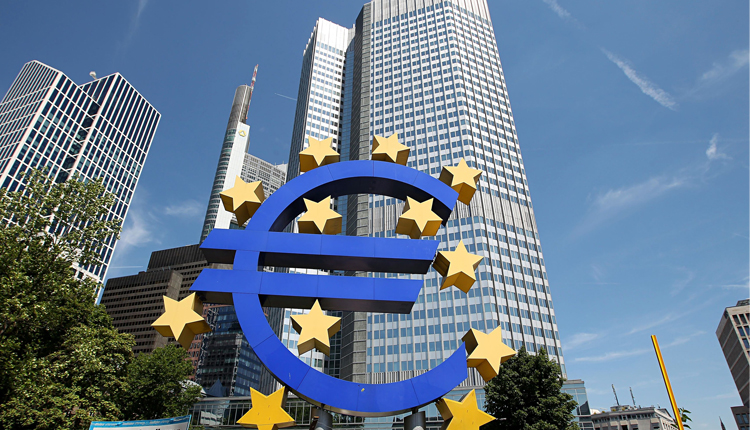European Central Bank (ECB) chief economist Peter Praet, one of the more dovish members of the bank’s Governing Council, openly said it would start to discuss the gradual exit from of its quantitative easing (QE) programme this week at its meeting in Riga, Latvia.
“We never pre-commit.” Praet said.
What has changed? Recent headline inflation was stronger than expected and close to the ECB’s target, mainly due to the rise in oil prices. At the same time the situation in Italy has calmed down again. But there still are risks to the growth outlook from other issues such as the U.S.-EU trade spat.
“We think a ‘flexible tapering’ announcement is more likely than an unconditional commitment to an end date for QE,” said ECB watcher Frederik Ducrozet at Pictet Wealth Management in a note.
“The ECB could say that there will be ‘no further large expansion of asset purchases’ barring an unwarranted tightening of financial conditions. The modalities of QE tapering could be decided in July.”
Whether the details come in June or July, the overwhelming majority of economists polled by Reuters expect the purchases to end by the end of this year.
“Irrespective of whether the exit announcement is in June or July, we expect QE to end in December after a taper in (the fourth quarter) and the first policy rate hike in June 2019,” said Mark Wall, the chief economist with Deutsche Bank, in a research note.
The rationale for the somewhat surprisingly “bullish” ECB could be found in the new round of staff projections which will also be released Thursday. While a downward revision of GDP (gross domestic product) growth is likely, albeit not dramatically, an upward revision for inflation will help the ECB explain its change of mind.
“Headline inflation that is rising towards 1.8 percent by 2020 would provide the (Governing Council) with the necessary ammunition to make a tapering announcement, however flexible,” said Ducrozet in his note.
But despite all the excitement about the exit to its massive bond-buying programme — brought in following the euro zone debt crisis to boost lending and stimulate growth — markets seem to have digested it very well and a so-called “taper tantrum” scenario is highly unlikely.
This seemingly due to the fact that stimulus from the ECB will not definitively end when its QE finishes.
“Monetary policy will remain very accommodative even after the end of net purchases. The stock effect of the asset purchase will exert a dampening effect on sovereign and corporate bond yields even after the end of net purchases,” said Dirk Schumacher, an ECB watcher with Natixis, in a note.
Source: CNBC


